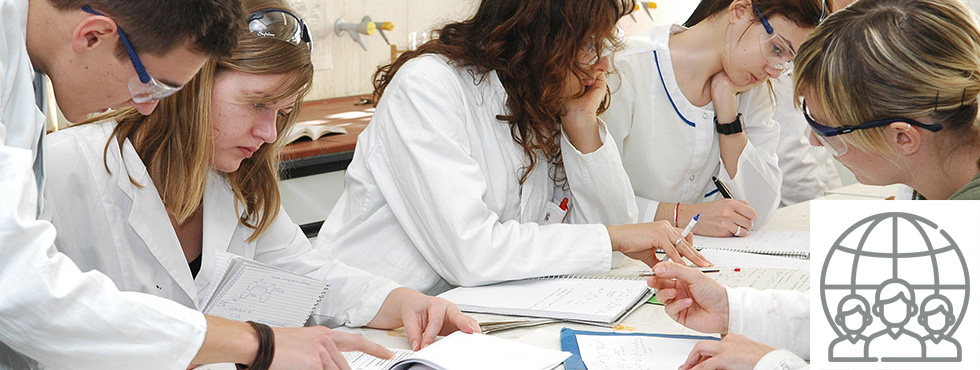Food scientists develop new recipes for food and produce them using various ingredients. They develop suitable packaging for the end products and accompany production processes from the raw materials to checking the final product. To do so, they work on the production equipment and plan and monitor production. They always have an eye on costs. In the lab, they carry out analytical tests, monitoring the quality of the products. The goal is to achieve a sustained product quality and optimize production processes. Adhering to hygiene and safety regulations is absolutely essential in food production.
This leads to the following professional fields:
- Food production and food processing
- Quality assurance and control
- Product development
- Research and development
- Process engineering and process automation
- Food supervision and inspecting
Employers include:
- Food and biotechnology industry
- Pharmaceutical and cosmetic industry
- Chemical industry
- Public research institutes at the federal and state levels
- Public service / agencies
- Auditing and consulting institutions
- Publishers
The areas of work in this field are very diverse, and job prospects are excellent. The life science industry has good growth prospects. This means that qualified personnel is in high demand. Half of all graduates find a position immediately after completing their degree, and another third are employed after 3 months. The annual gross income for career entrants with a Master’s degree is between € 38,000 - 43,000. This depends on the field, industry, and professional experience (source: www.foodjobs.de).
Each summer semester, the CareerCenter Hohenheim organizes the career fair “Life Science” for the agricultural and natural science programs. At the fair, you can get to know potential employers and get an idea of the different professional fields.
The Bachelor's degree is a prerequisite for subsequent Master's studies. The Faculty of Natural Sciences offers two consecutive international Master's programs in this field (language of instruction: English):
- Food Biotechnology
In this interdisciplinary and research-oriented Master’s degree program, we concentrate on conveying knowledge about the properties, production processes, and diverse possibilities of applying enzymes and microorganisms in the food industry. You will learn biochemical methodological knowledge to purify and characterize enzymes, enzyme kinetics, immobilization of enzymes, and the expression and mutagenesis of recombinant enzymes. In addition, you will develop microbiological expertise in handling pathogens in food production. The program focuses not only on the food industry, but also on the pharmaceutical and chemical industries. - Food Science and Engineering
This research-intensive Master’s program conveys expertise in modern food processing. The focus is on the links between complex food matrices and technological processes to develop and produce nutritious, safe, and non-perishable food and nutrient recipes. We prepare our students to transfer basic research into new technological processes. They learn how to develop innovative technologies that are transformed into product-specific, automated production processes. This degree program is product-oriented.
- Food Systems
In this European collaborative Master's program, you will gain a solid overview of the food system and an understanding of general systems science principles, as well as in-depth expertise in three scientific disciplines relevant to the food system. You will additionally study at two European universities according to the chosen mobility path. Due to the strong integration of entrepreneurial elements and project work, which can be supervised by industry partners e.g. from the EIT Food consortium, you will have the chance to acquire practical skills that will facilitate your career entry into renowned and multinational food companies as well as start-ups.
The CCH is the first point of contact for students and graduates on the topics of professional orientation and career entry.
The CCH team answers your questions about:
- orienting your studies on your future career,
- developing your career profile,
- finding suitable openings for internships or direct career entry,
- creating application materials, and
- establishing contact with employers.


